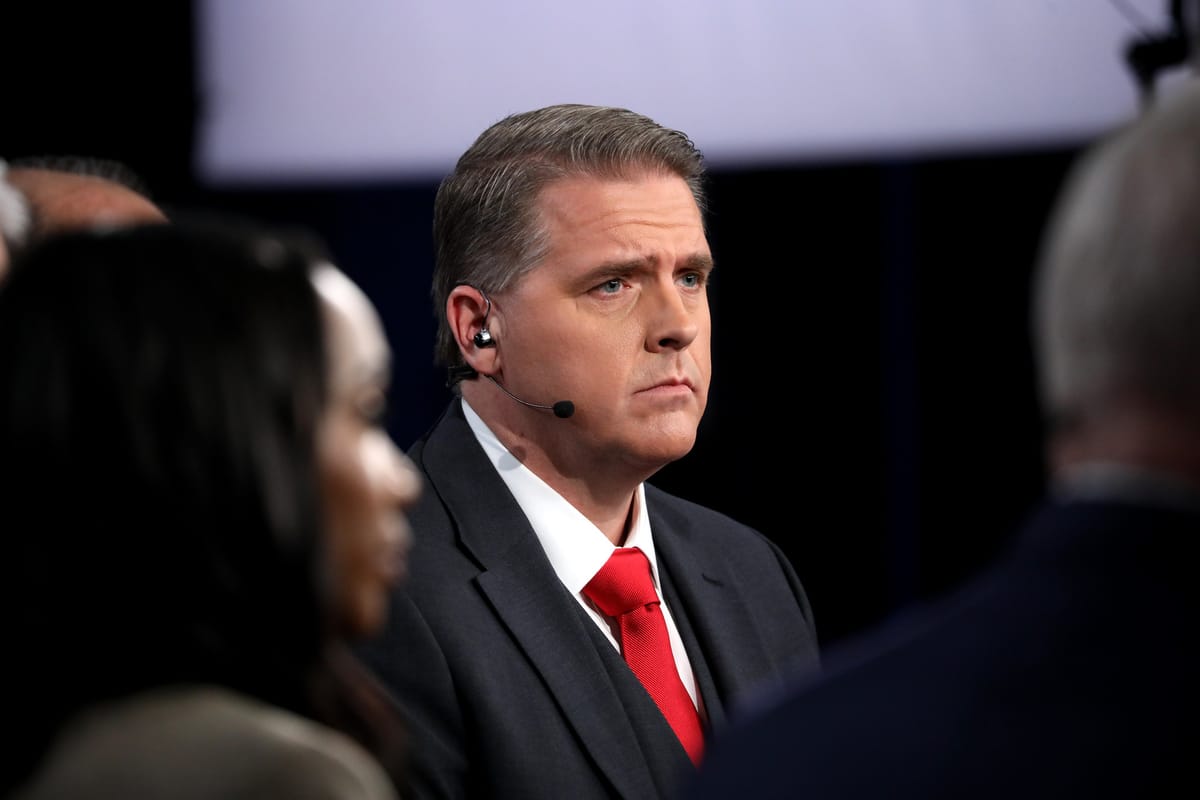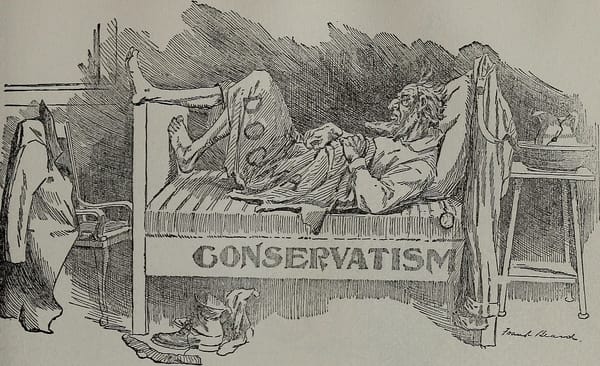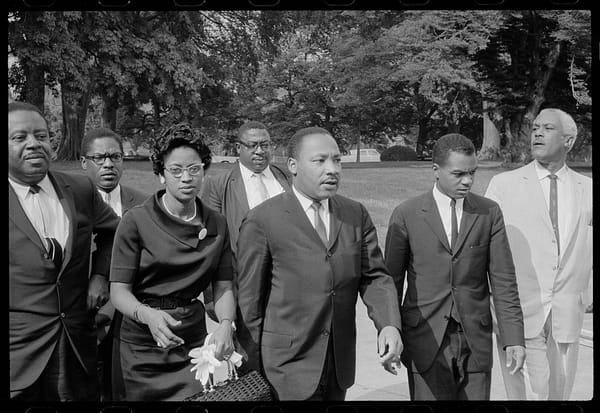Scott Jennings in the Hyperreal and the Myth of the Escape Hatch
Jennings is like a simulation of a Trump enabler.

Scott Jennings has the shape of a man. With his suits, fine gray hair, Southern lilt, and expressive eyebrows, he cuts the image of a reluctant cable news provocateur.
But there is little about Jennings, or the words that come out of his mouth, that corresponds to reality. A decade into Trump’s capture of the Republican Party, Jennings is the premier crossover enabler. He is perhaps CNN’s most recognizable face alongside its primetime anchors, and he is feted on jokey, tough-talk shows like Bill Maher.
But Jennings is a representation of our own malady, a projection of a country whose political culture is now ten years into the terminal illness of Trumpism. His segments play out like a reality show version of toxic, both-sides infotainment. His debates on Abby Phillip’s NewsNight are like Crossfire on steroids—and heroin.
When Neera Tanden pointed out the hypocrisy of Jennings calling for the jailing of people vandalizing Tesla dealerships as he defended the man and party responsible for January 6, he mustered every bit of sanctimony and rage he could: “Let me educate you! You don’t need to be condescending to me…I’m sorry you’re a condescending person who hasn’t been paying attention to what I do here.” Despite Jennings’s on-the-record criticism of January 6 in its immediate aftermath, it’s clear Tanden has paid attention to what it is he does.
There and elsewhere, Jennings is a clip machine. He’s perfect for both a paranoid, self-victimizing right that sees enemies to Trump everywhere and liberals and Never Trump conservatives who leap to point out the audacity and apparent stupidity of Trumpworld lies. Every interaction is pure fodder for MAGA diehards salivating for “lib owning” and, simultaneously, perfectly made for sharing by those overcome with outrage and disdain.
When Trump declared his intention to mobilize California’s National Guard in the face of protests in Los Angeles, Jennings offered a litany of MAGA complaints to justify the action:
Trump warned CA to put an end to anti-Semitism and extremism on college campuses. He told them to get boys out of girls' sports.They ignored him. And now they're fighting federal agents rounding up illegals.
In another segment, Jennings attacked the CBO’s scoring of Trump’s “One, Big Beautiful Bill” as a hit job. Despite being reminded that Trump is in power and the executive branch is staffed by his appointees, approved by a Republican Senate, Jennings insisted, “Reality has been distorted by the CBO…totally partisan, people who hate Donald Trump.”
He’s like a simulation of a Trump enabler. He appears congenial and professional-looking. He is, implicitly, someone who knows better, having worked extensively with Mitch McConnell and chastised Trump after January 6. He’s aggrieved by each and every insinuation that he is acting on anything other than good faith, when in fact he is utterly absent of it. And he is immune to the truth, as is the man he defends day and night across cable news and podcasts. Every moral failing of Trump is an opportunity to project a fantastic list of crimes on the Democrats—racism, violence, authoritarianism.
Recently, on Tara Palmeri’s podcast, Jennings trotted out a favorite argument of his about Democrats being the party of political violence. “The left has a problem with violence…it is in its heart,” he claimed. He also advised Democrats to stop “doubling down on the crazy,” a head-spinning assertion in this moment of maximum Trumpism.
Jennings claims to represent “middle America,” but if Jennings is in any way part of middle America, he’s the suburban development that imitates farmhouse and antebellum styles, padded with street names that evoke plantation and colonial idylls. In his newest book, Jennings describes the return of Donald Trump to the White House as “A revolution of common sense.” It’s a ludicrous description of the Trumpian project of revanchism, grievance, and paranoia.
The famed modernist designer Paul Rand once wrote, “In essence, it is not what it looks like but what it does that defines a symbol.” The trouble with Jennings is that he both does and doesn’t resemble what he is. He appears engaged, sometimes affable, and occasionally passionate. What he does is simple: lie.
But everything about Trumpism is fascism in the hyperreal: reality television distortion plastered into a living set, and the imitation and modeling of power, grandeur, and state terror funneled through an Instagram filter.
Jennings fits right in. His role at CNN is painfully obvious to us, and yet we can’t help but take the bait. His insincerity and manufactured feelings of insult and injury are an echo of the visceral absurdities of the man to whom he’s tied his career. But they’re always packaged with the subtle implication that he might not actually be what he’s become, that perhaps at any moment the simulation will fail and the real—the flesh and bone, honest and apologetic—Jennings will be revealed.
But that man doesn’t exist. The worst part is that this is the same thing we experience with America every day. We hope with each outrage, with every slight move in the polls, with each dip of the stock market that our real self will be revealed. The whirring machines will power off and the dreamscape of a nation given over to illiberalism, hate, paranoia, and the aspiring strong man who feeds on it all will drop away. We will be like Truman in The Truman Show, finally escaping to real streets, real weather, real people with whom we can have real relationships. And there will be no Scott Jennings. But there’s no hatch, and the revelation will never come. Because the lies are not true, but they are the reality we live in.
Featured image is Scott Jennings, by Gage Skidmore




